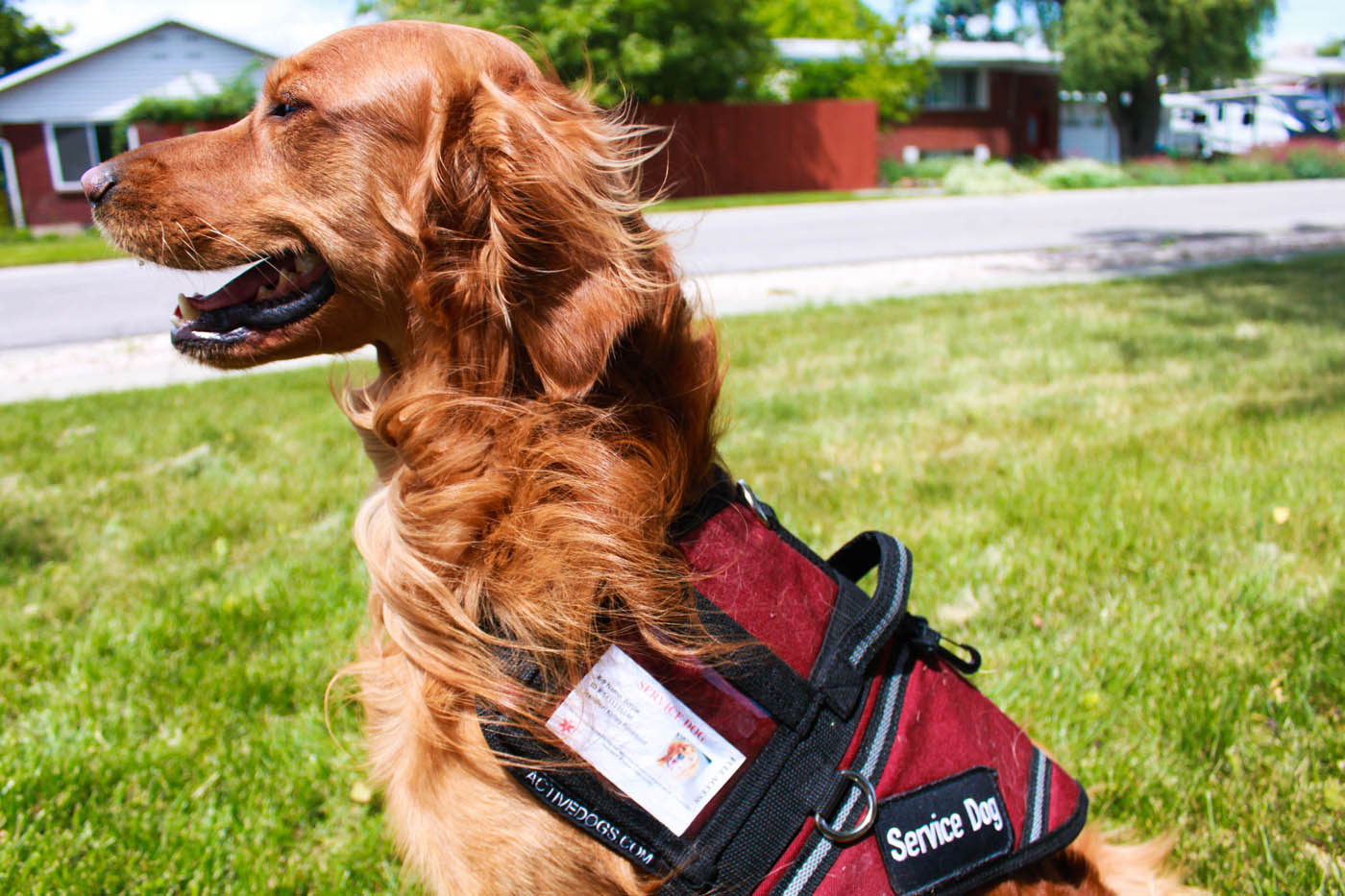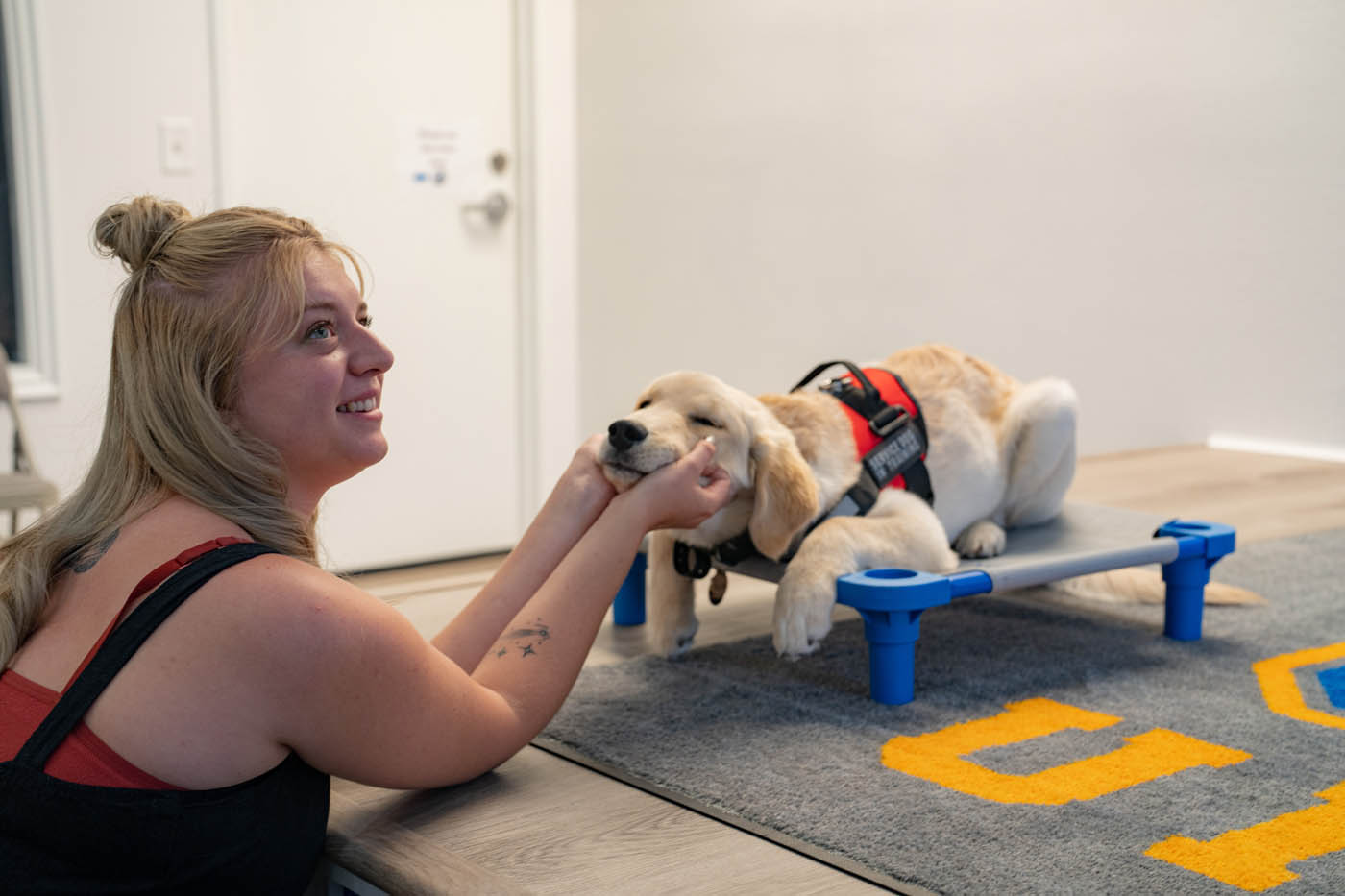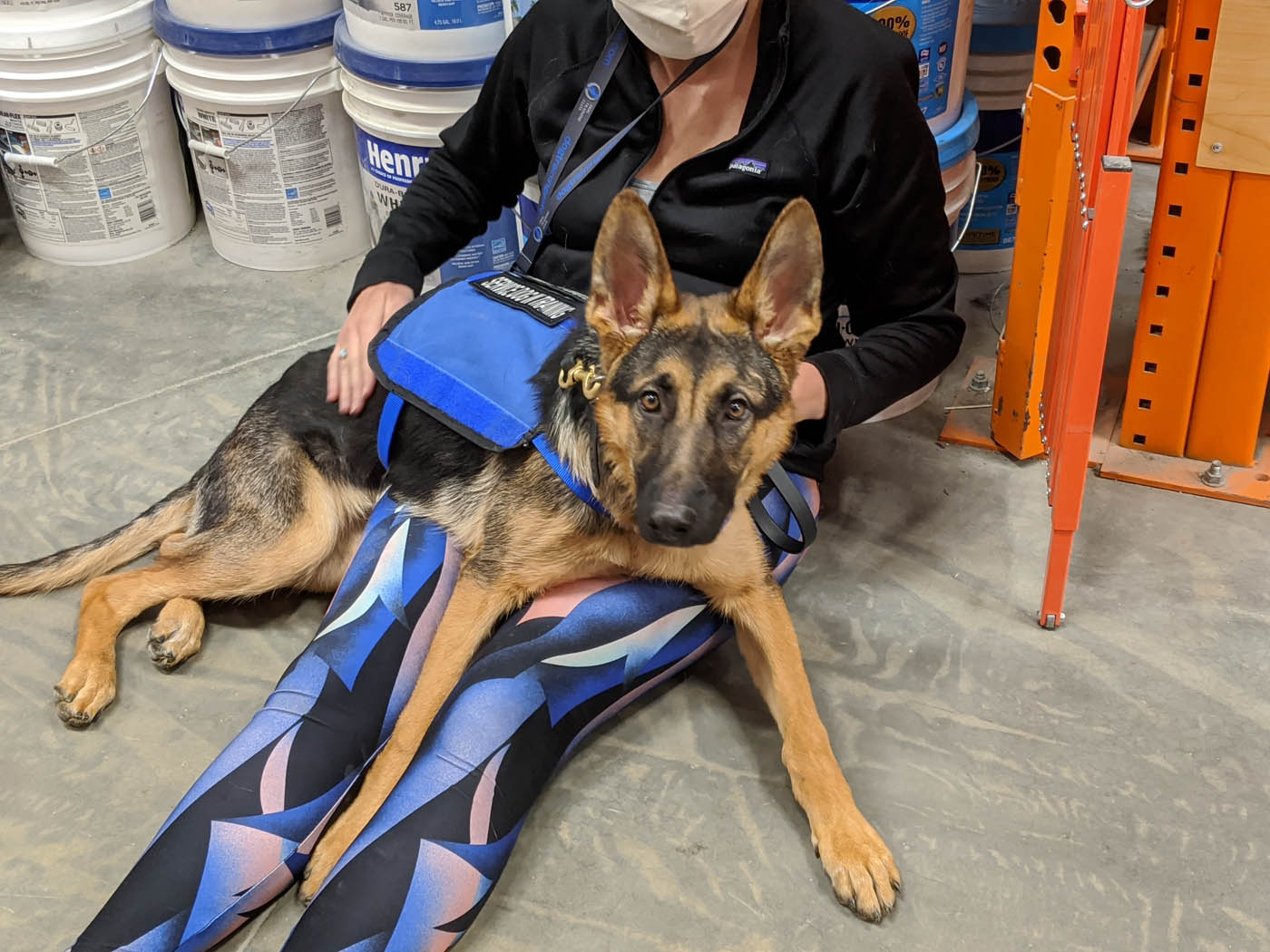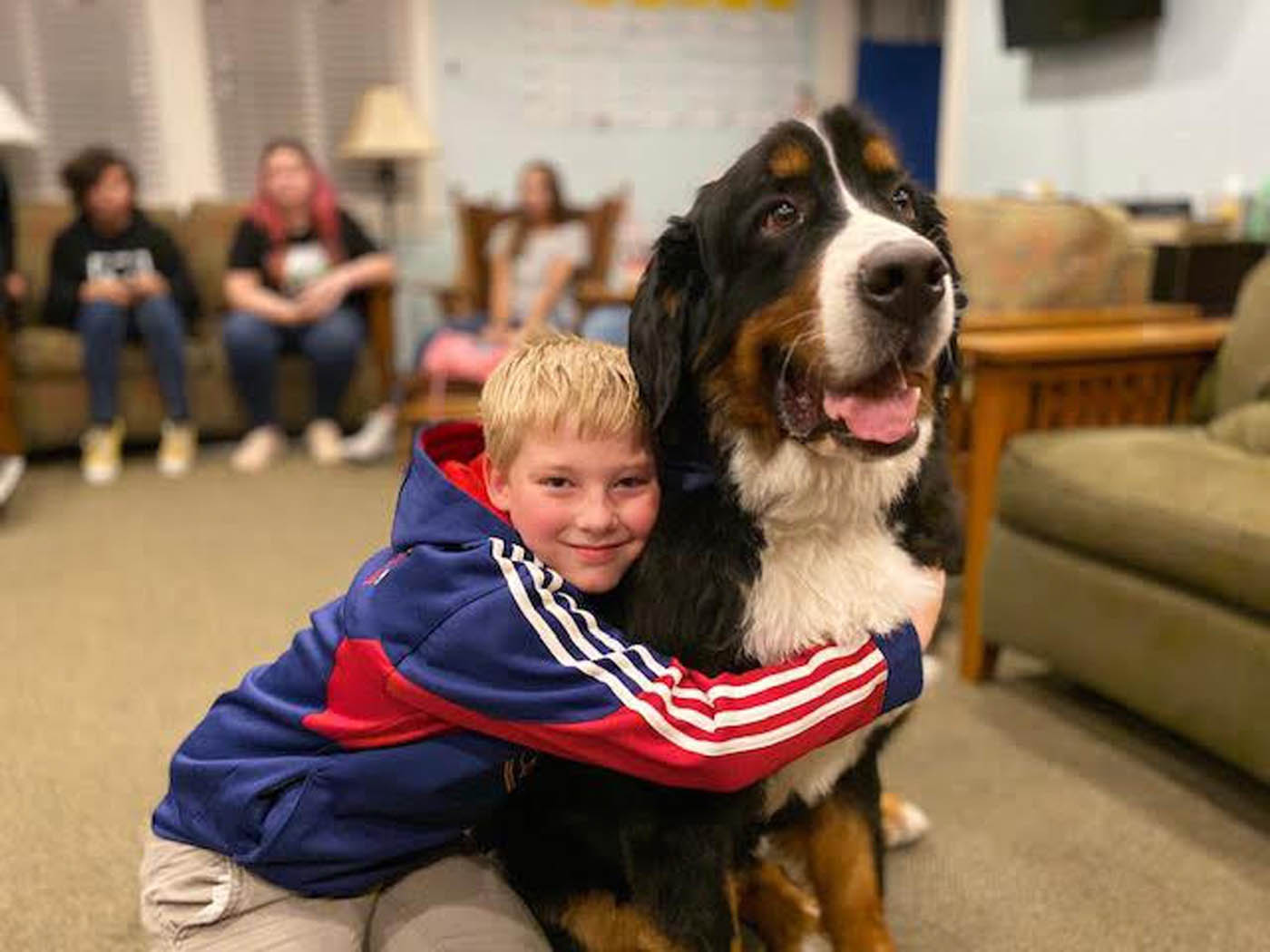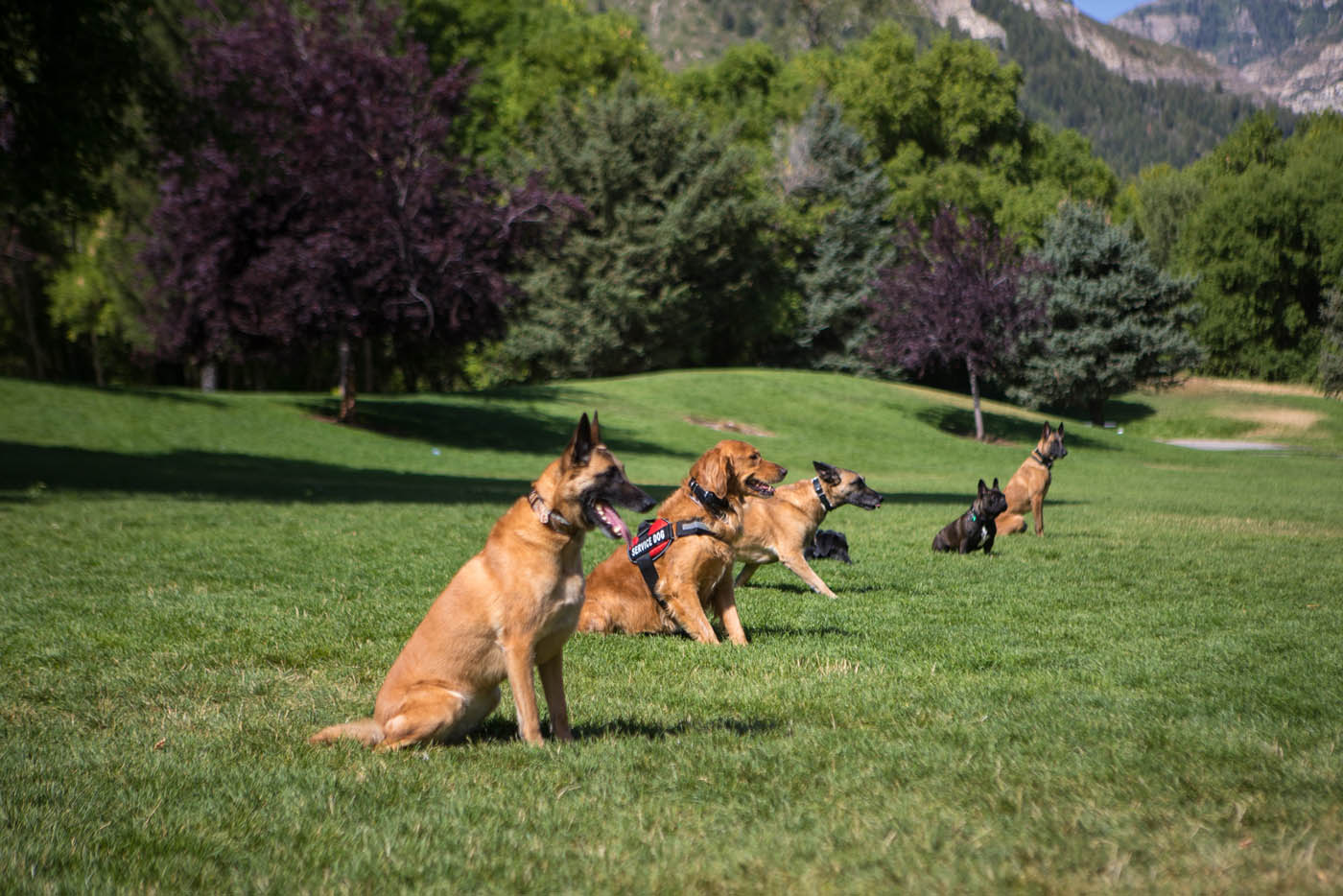
(participating locations)
Dog Training Elite Midlands SC
Service Dog Training in Columbia, SC
The Americans with Disabilities Act (ADA) defines a service dog as “a dog that is individually trained to do work or perform tasks for a person with a disability.” Disabilities include mental or physical impairments that affect an individual’s ability to perform one or more major life activities (walking, seeing, etc.).
Because service dogs play such a key role in the life of disabled individuals, they are protected by the law. Places of residence, employment, and commercial facilities cannot discriminate against disabled individuals with service animals. If you are wondering how to get a service dog, you can either purchase a fully trained dog or purchase a service puppy and train it.
With our service dog training in Columbia, SC, we ensure that your dog is trained to meet the specific needs of your disability, providing personalized support and empowering both dog and handler for long-term success.
See Training Packages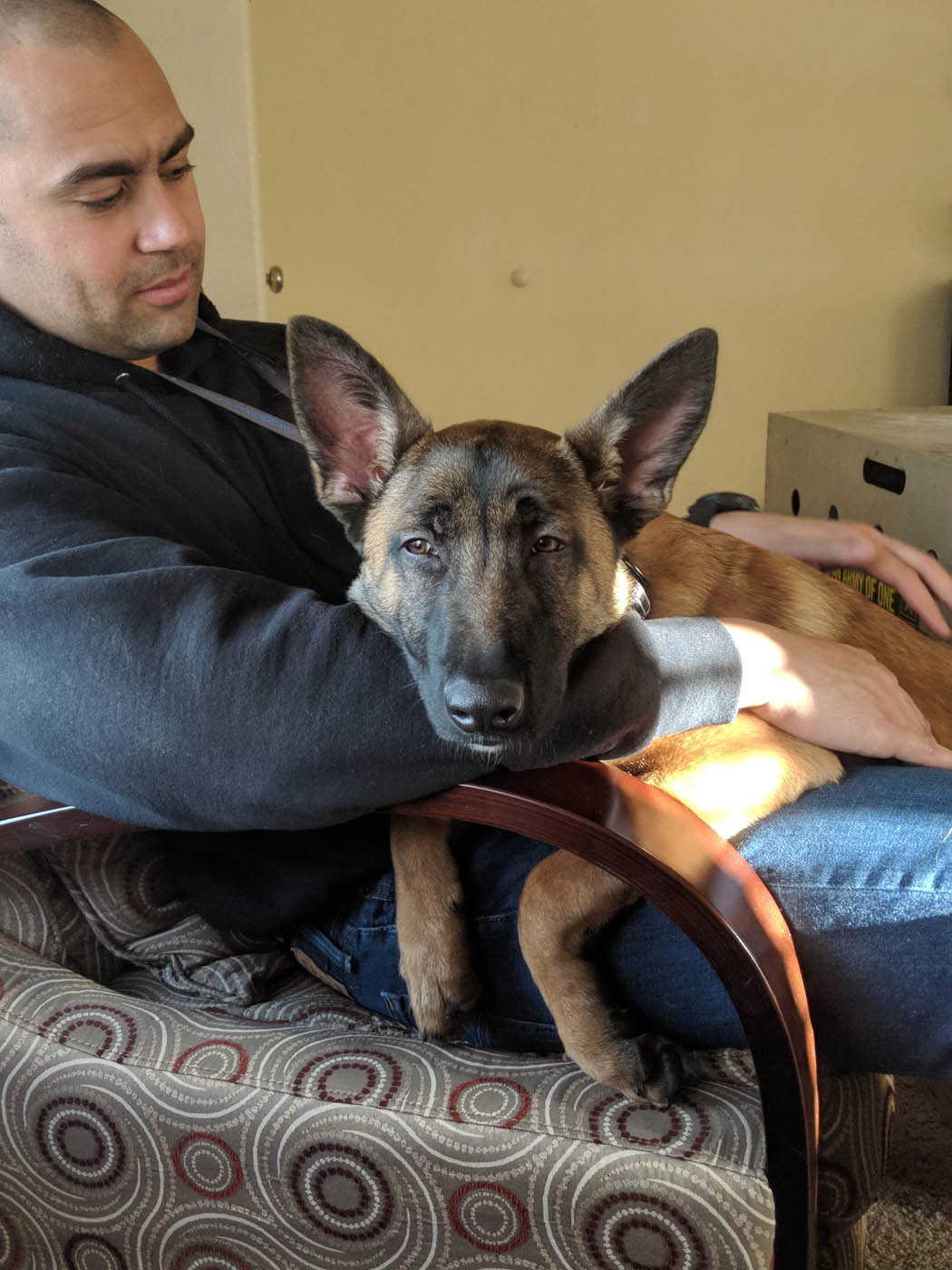
Our Positive Approach to Service Dog Training
At Dog Training Elite, we believe that successful dog training requires dedication, patience, and balance. That’s why we are committed to using positive reinforcement techniques in all of our training programs.
Through balanced training, our team helps owners build trust with their dogs. This approach is especially important for service dog training because strong relationships and communication are essential for dogs to reliably assist their handler.
By focusing on encouragement rather than punishment, we created confident, well-behaved dogs that are eager to perform their best and impress their owners.
Get Your Free Assessment
You and your canine companion really can have it all. See how easy it can be to become a member of the elite pup society by requesting a free consultation today!
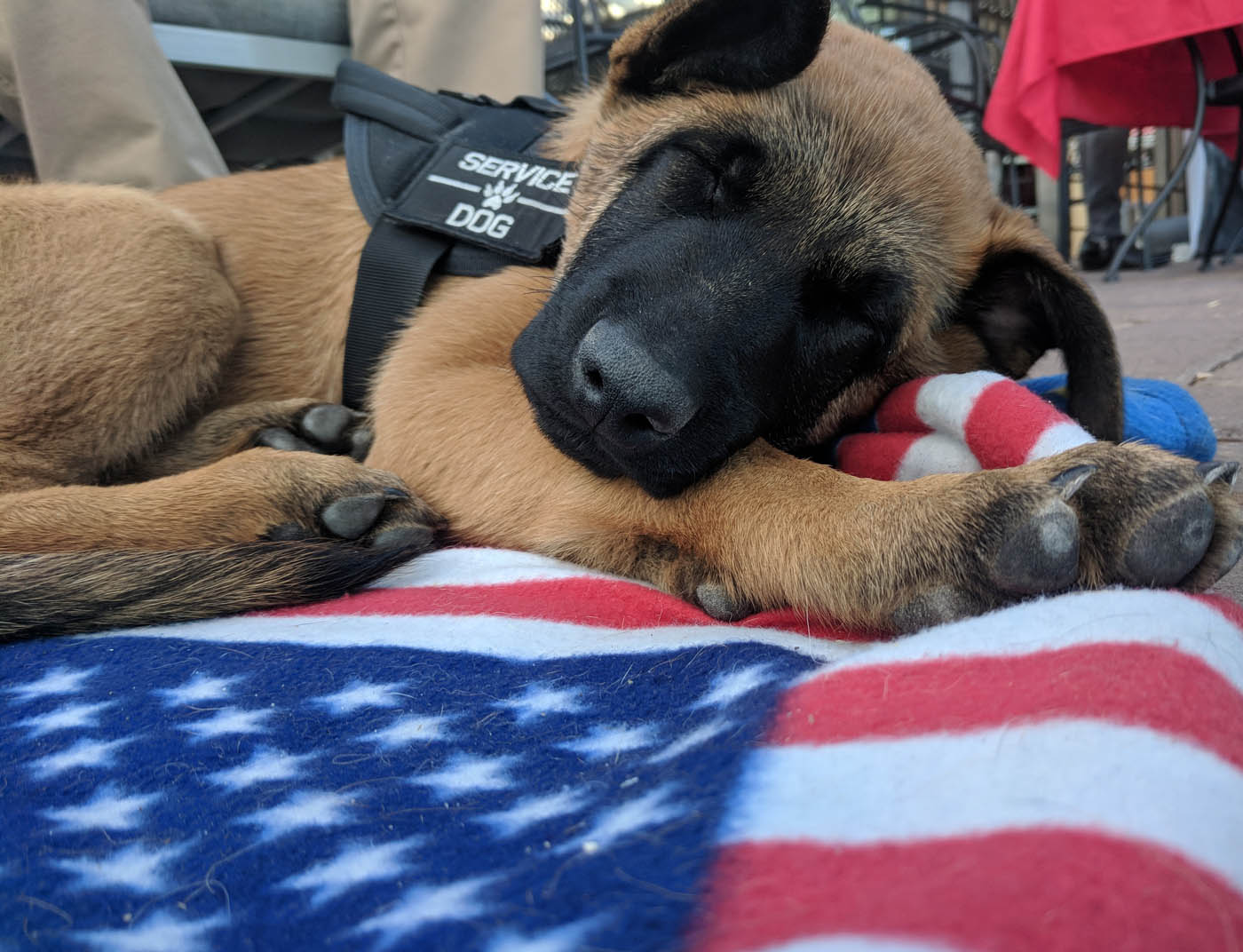
Dog Training Elite Midlands SC
Is a Service Dog The Same As a Therapy Dog?
Many types of working dogs increase the quality of life for their handlers. The three main categories of working dogs are service animal, therapy animal, and emotional support animal. Each category covers different areas of support and different levels of protection under the law.
-
Service Animal
As mentioned above, service animals assist individuals with disabilities. Depending on the person’s needs, the service animal learns how to perform certain tasks. Guide dogs, for example, help blind individuals safely navigate their environment. Seizure response dogs respond to their handlers when the individual is having a seizure. Service animals are highly trained and specialized, and they are also offered the most protection under the law compared to therapy or emotional support animals.
Dogs are not the only kinds of service animals - miniature horses are often trained to support individuals with disabilities!
-
Therapy Animal
Therapy dogs provide comfort and improve the mental well-being of individuals in hospitals, hospice care, retirement homes, nursing homes, schools, and more. These dogs must have a friendly, calm demeanor and be comfortable when handled by strangers.
Therapy dogs are not trained to perform specific tasks, but they must be obedient and well-mannered. Therapy animals are permitted in some areas where pets are not, but they have fewer protections than service animals. All therapy dogs must be certified before they can offer their services to the community.
-
Emotional Support Animal
Emotional support dogs relieve loneliness, anxiety, depression, and other symptoms of mental health disorders. They provide comfort to their handlers, but they are not trained to perform specific tasks. Most emotional support animals are sensitive to the emotional changes of their handler and will remain close by at all times. Emotional support animals are not protected by the ADA, but residential buildings must permit emotional support animals.
Dog Training Elite Midlands SC
What Can Service Dogs Do?
Service dogs are crucial in assisting individuals with various disabilities and conditions, providing them with support, independence, and companionship. These highly trained dogs can perform specific tasks tailored to the needs of their handlers. Learn about breeds that make great service dogs, who can benefit from a service dog and the training that will help these pups meet their handler's needs.
Additional Service Training Info
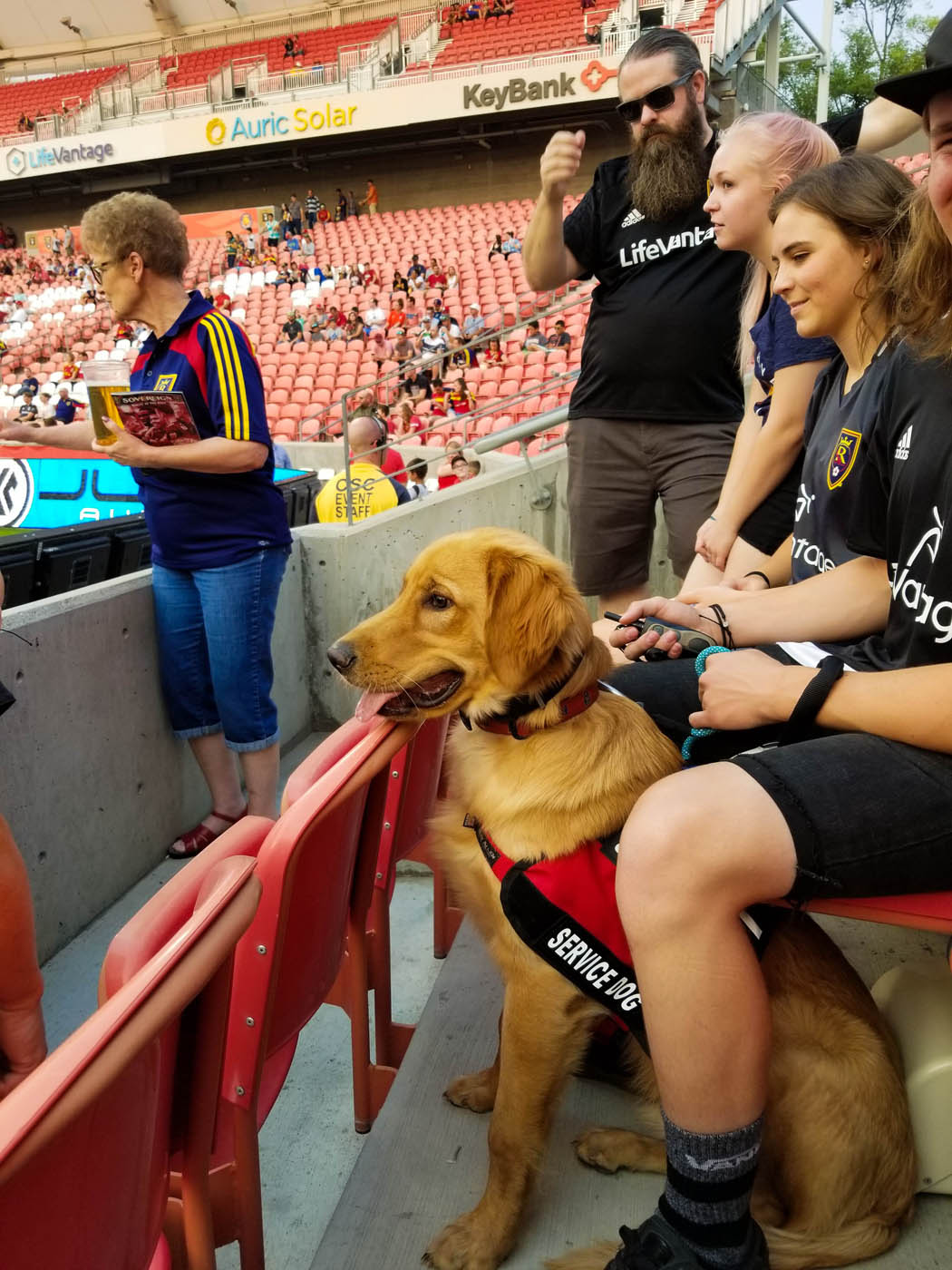
Dog Training Elite Midlands SC
Service Dogs for Anxiety, PTSD, and Autism
Service dogs trained to assist handlers with severe anxiety or depression perform specific tasks that reduce the potential for panic attacks or self-harm attempts. Such tasks include deep-pressure therapy, tactile stimulation, alerting, clearing rooms, blocking strangers from approaching, and more. Service dogs trained to assist those with Post Traumatic Stress Disorder (PTSD) have greatly improved the lives of many veterans.
Service dogs also make a big impact on the lives of children with autism. Children with autism are often prone to meltdowns, have trouble communicating, and are quick to run off or become easily lost. Service dogs prevent and mediate all of these behaviors to provide a higher quality of life for children with autism and their families.
As autism is a spectrum disorder, each child has varying needs of assistance. Autism service dogs perform the following tasks:
- Tracking: Children with autism often wander away, and a parent’s worst fear is turning their back for just a moment and discovering their child is gone. Autism service dogs will track the child if this ever happens.
- Tethering: This task minimizes wandering, which is common in public settings. The child is tethered to the service dog’s leash or harness, preventing him or her from wandering away.
- Behavior Interruption: Repetitive and ritualistic behaviors are typical of autistic children, as are meltdowns when the child becomes overstimulated. Autism service dogs recognize these negative behaviors and redirect the child’s attention when they start. A simple paw or nudge is all it takes to prevent a meltdown.
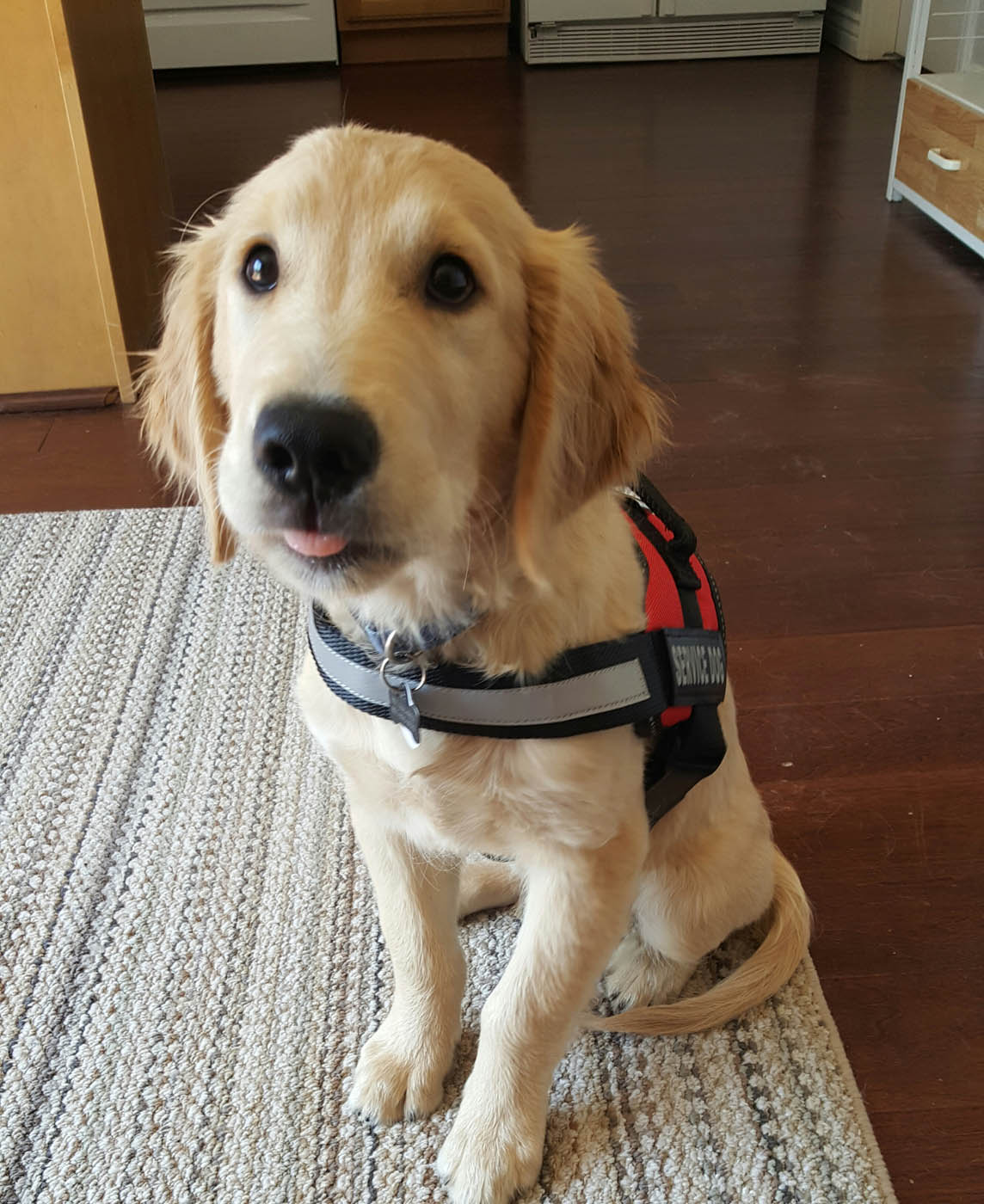
How Do I Get a Service Dog?
If you are wondering how to get a service dog, there are a couple of different approaches. Some service dogs are purchased outright, fully trained. Or a compatible dog is selected and trained from an early age. Training a dog from the start is the best option, especially for those with specialized needs.
Training a dog to perform service responsibilities must start from day one. Only certain breeds are suited to service work, and breeders put a lot of time into raising puppies to be service animals. Once you have purchased a service puppy, additional training is necessary to prepare your puppy for life as a service dog. This is a complicated process that involves various steps. Dog Training Elite makes getting a service dog easier with our service dog training program.
Our talented trainers can help select puppies that are prepared for a life of service from well-respected breeders. When these puppies enter the service dog training program they are closely monitored for behavior and temperament and can be fully obedience trained by the age of six months. These puppies undergo extensive socialization and additional training to ensure they are well-suited for service and therapy needs including specialized service training alongside the new handler.
This program is ideal for handlers who want to take part in the developmental years and extensive training of their service puppy.
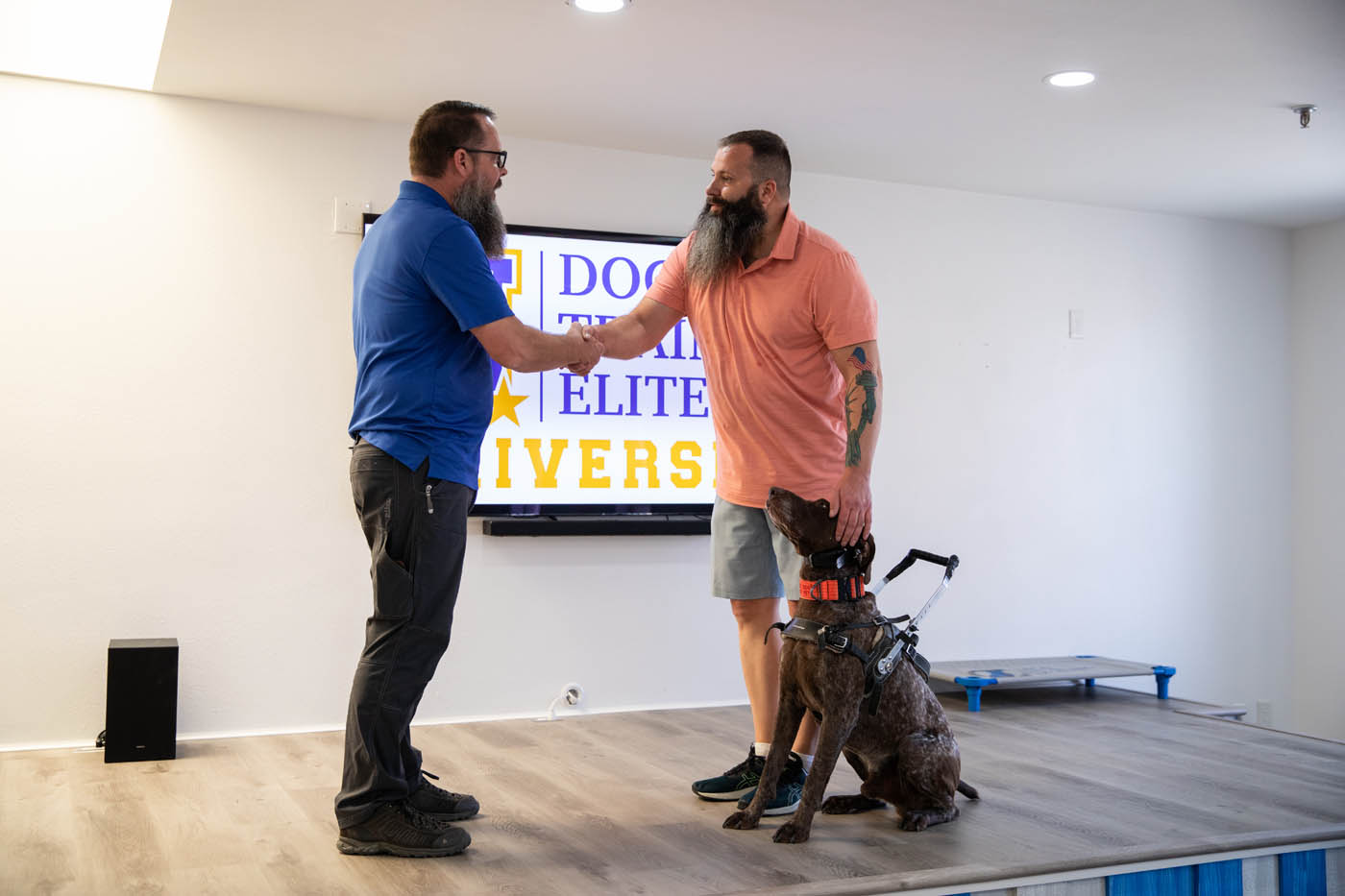
We Are Committed to Making a Difference
Choose DTE for Columbia Service Dog Training
At Dog Training Elite, we are passionate about transforming lives through Columbia service dog training. Our proven, balanced training methods help create highly skilled, dependable service dogs that are both obedient and loyal to their handlers.
From mobility support and physical assistance to emotional well-being and more, Dog Training Elite is committed to providing personalized, high-quality training that makes a lasting impact.
Choose Dog Training Elite Midlands SC and experience the difference that elite training and compassionate care can make.
